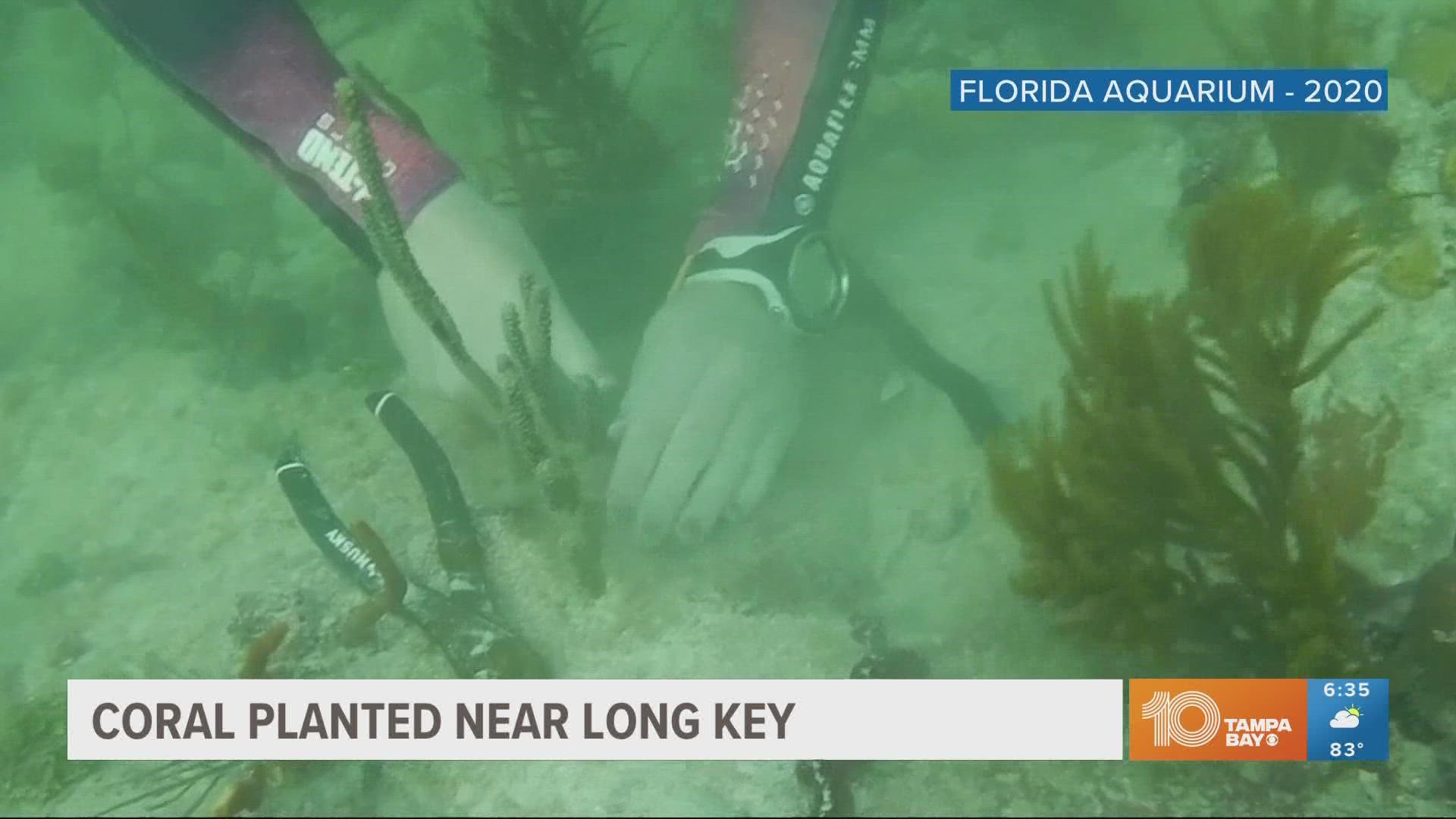LONG KEY, Fla. — Hundreds of coral were relocated near Long Key, Florida, in an effort to restore Florida's Coral Reef.
The Florida Aquarium placed 560 corals at an offshore reef site after coral scientists worked to breed four species at the Florida Aquarium's Center for Conservation. The species include boulder brain, grooved brain, symmetrical brain and spiny flower.
The coral recently planted in the Keys are offspring from parent collies collected as part of the Association of Zoos and Aquariums Florida Reef Tract Rescue Project. It's led by the Florida Fish and Wildlife Conservation Commission and NOAA Fisheries.
The young coral, all between 20 and 24 months old, were raised from larvae. Before being released to the ocean, the corals were held overnight in seawater aquarium systems at the Keys Marine Laboratory.
While placing the corals at the outplant site, Florida Aquarium divers set up a 15-meter by 7-meter plot to establish a grid for planting.
"We spent three days at the site under near perfect conditions,” Rachel Serafin, senior coral biologist, said in a news release from the Florida Aquarium. "With incredible weather and fantastic underwater visibility, we were able to find an ideal site on Tennessee Reef, which we nicknamed 'Squid Row' for the reef squid we found there!"
Aside from saving Florida's Coral Reef, biologists are also trying to see if planting closely related coral offspring grown in a lab nearby each other in the wild is beneficial or harmful to their survival and growth. The corals were placed in four treatment levels "including individual fragments, established clusters, touching clusters and new spaced clusters."
From here on out, the corals will be monitored for the next two and a half years.

